
After a full year of decreases in the hiring of new college graduates, employers now plan to hire 7.3% more new graduates from the Class of 2025 than they did from the Class of 2024. The main reason for the increase in hiring, as indicated by those respondents is their commitment to succession planning and the importance of their talent pipelines. Also, more than 60% reported that their companies are growing. Of the respondents planning to decrease hiring, almost two-thirds cited budget cuts as the main reason. Additionally, almost half are seeing a reduction in business needs and projects.
Posted November 2024. For updated hiring projections for the college Class of 2025, see the Job Outlook 2025 Spring Update.

Last year, although their overall hiring projection was decreasing, employers rated the overall job market for new college graduates as good. The same is true this year, but despite the overall increase in hiring, slightly more employers rated the job market as fair (21.8% to 36.2%) and poor (1.6% to 3.4%). And, the very good (21.4% to 12.1%) and excellent ratings (3.3% to 1.7%) show smaller percentages of employers.
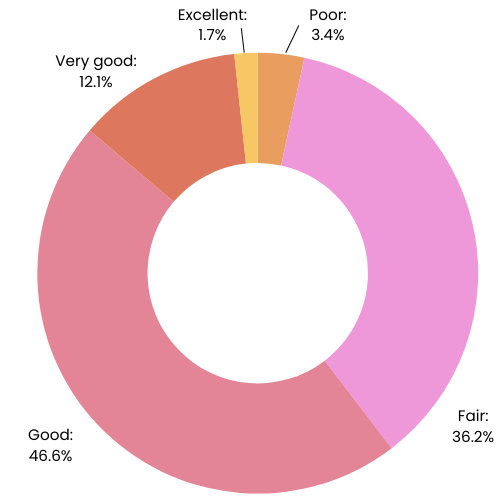

Hybrid work modality is at its highest reported levels with 50% of overall and 54% of entry-level positions being performed in this manner. And, fully remote work has declined significantly to just 8% of overall positions and 4% of entry-level positions.
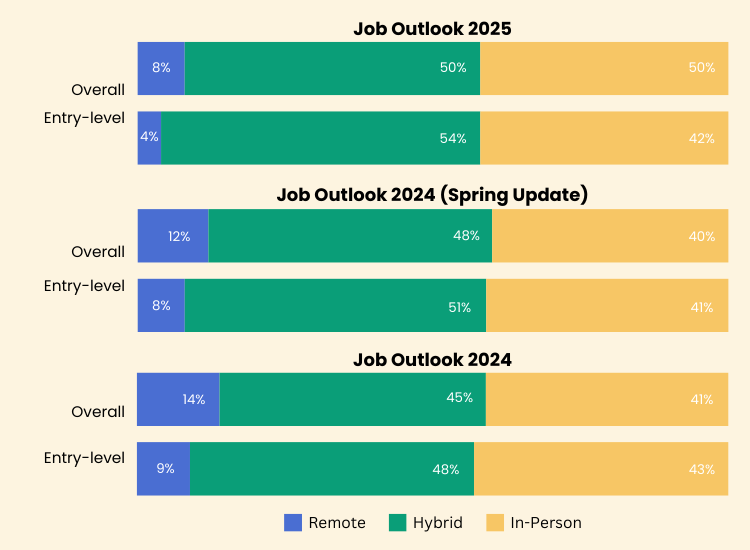
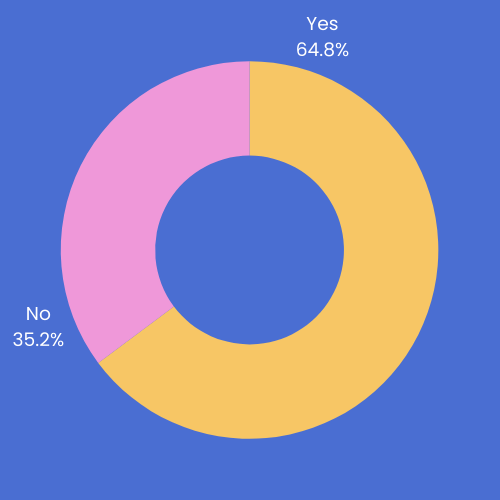
For the first time ever, we asked employers about their use of skills-based hiring, and almost two-thirds of respondents reported its use.
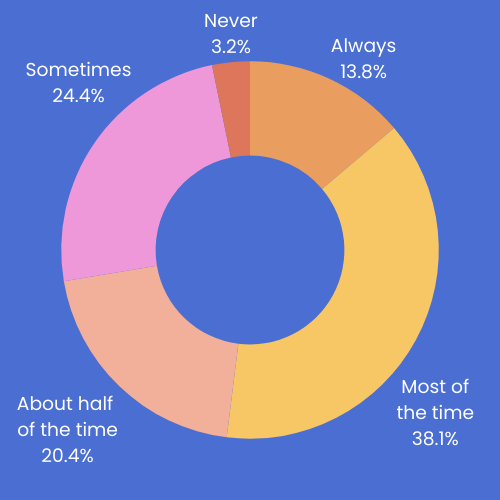
Over half of employers using skills-based hiring practices use them always or most of the time. Interviewing and screening are when most of the use occurs. And, a variety of skills based hiring practices are used, e.g. competency-based job descriptions, interview rubrics, and internally and externally-created assessment tools.
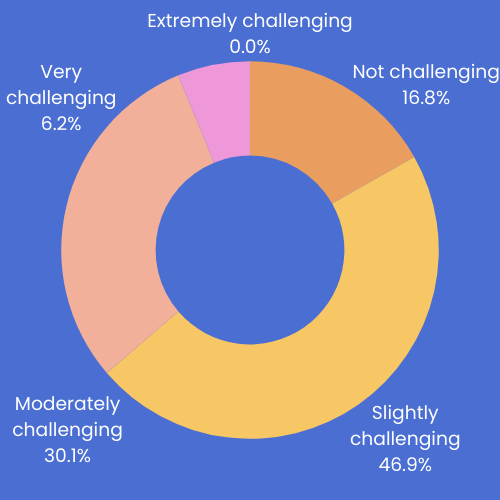
Overall, employers find implementing skills-based hiring relatively easy. Lack of department time/resources, buy-in from hiring managers, and cultural hurdles within the organization top the list of specific challenges in implementing skills-based hiring.

Overall, salaries are expected to rise for the Class of 2025. More than 40% of respondents will increase salaries at the bachelor’s degree level, and almost 30% will do the same at the master’s degree level. Over half of employers plan to offer signing bonuses for Class of 2025 graduates. And, of those planning to offer them, almost two-thirds will offer them to selected graduates only.
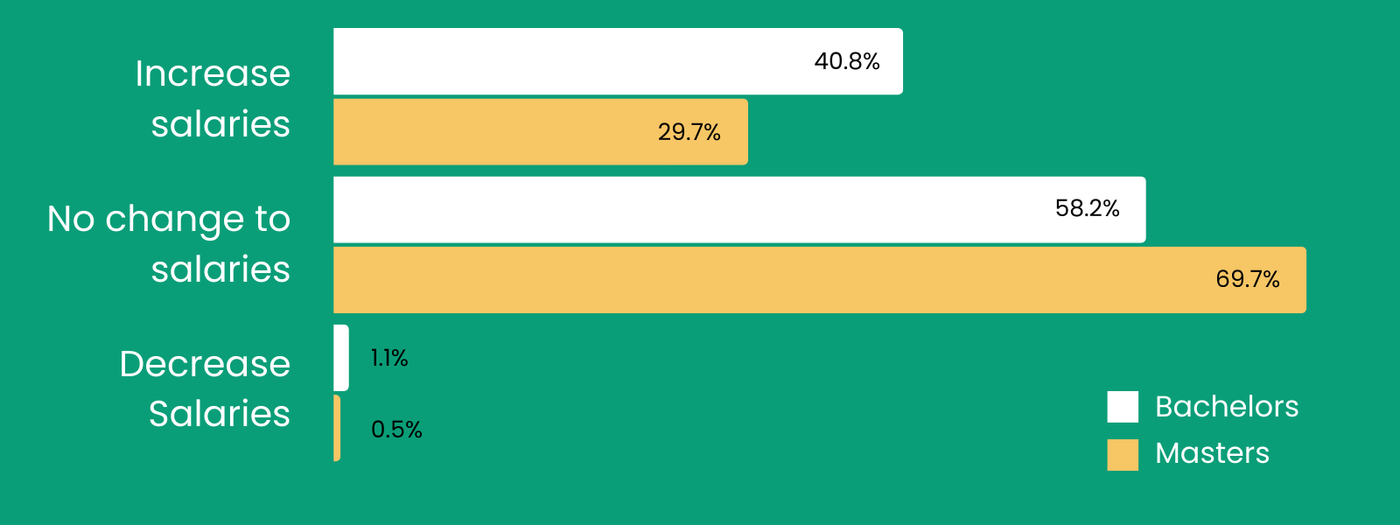
When asked which majors employers hire in general, almost one-quarter of respondents report that they hire college graduates in any major, regardless of whether they relate to their specific industry, and 51% hire in majors that are exclusive to our industry AND other majors that fall outside the realm of our industry.
Only 23% say they are hiring JUST in majors exclusive to their industry.
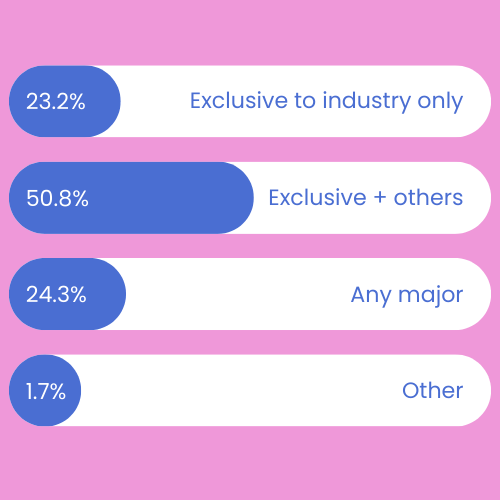
47%
of respondents indicated they will screen by GPA—up from 37% and 38.3% planning to do so in 2023 and 2024, respectively.

Hiring for the college Class of 2025 is expected to increase 7.3% over hiring for the Class of 2024, according to NACE’s Job Outlook 2025 survey.
Read More
College students from the Class of 2025 looking to enter the job market should highlight on their resumes the attributes and skills they developed in their classwork and through their various experiential assignments. But which attributes and skills are most important to employers?
Read More
Close to two-thirds of employers responding to the Job Outlook 2025 survey reported that they use skills-based hiring practices for new entry-level hires, and more than half use these practices always or most of the time in their hiring process.
Read MoreThe annual Job Outlook survey is a forecast of employer's hiring intentions of new college graduates. Data for the Job Outlook 2025 survey were collected from August 5, 2024, through September 16, 2024. Data are calculated based on the number of respondents to each specific question. Totals may not equal 100% due to rounding.
NACE expects to provide a formal job market update during the 2024-25 academic year. Based on data collected in February and Mach, the Job Outlook 2025 Spring Update report will provide a final update on hiring for 2024-25 graduates. The results will be available in early April.

Shawn VanDerziel
President & CEO, NACE

Mary Gatta
Director of Research and Public Policy, NACE

Joshua Kahn
Associate Director of Research and Public Policy, NACE

Andrea Koncz
Senior Research Manager, NACE
NACE believes in a world that is inclusive in approach and where equal opportunities and equitable outcomes exist for all. Read NACE’s Diversity, Equity, and Inclusion Statement at www.naceweb.org/dei-statement.
© 2025 National Association of Colleges and Employers. All rights reserved.